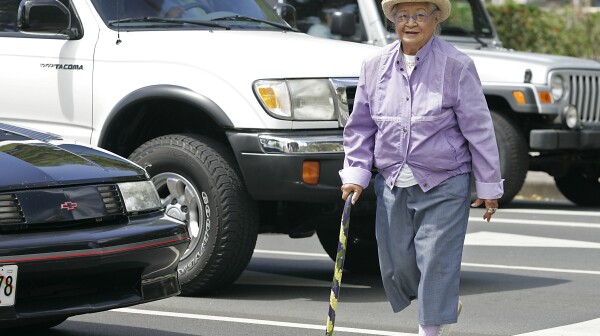AARP Eye Center
CLOSE ×
Search
Popular Searches
- right_container
- Health
- Money
- Work & Jobs
- Advocacy
- Social Security
- Medicare
- Caregiving
- Games
- Travel
- More...
- Entertainment & Style
- Family & Relationships
- Personal Tech
- Home & Living
- Auto
- Staying Sharp
- Podcasts
- Videos
Dedicated to enhancing the lives of those over 50
JUN 19, 2025
For the last two years, AARP - Virgin Islands has been working alongside local legislators to push through the Opioid Notification Bill No. 36-0021, and yesterday Governor Albert Bryan, Jr. signed this bill into law! Bill No. 36-0021 requires healthcare providers to disclose the risks associated with opioid use, helping patients make informed decisions. This bill complements prior legislative efforts supported by AARP, including the recent establishment of the Prescription Drug Monitoring Program (PDMP) and the creation of the Opioid Abatement Fund. Together, these efforts advance the work of combating opioid misuse and protecting public health in our territory.
JUN 6, 2025
AARP, which advocates for the more than 100 million older Americans aged 50 and older, including the 20,000 living in this Territory, is pleased to release a joint statement in recognition of June as Elder Abuse Awareness Month. This month is recognized globally as a time to raise awareness and inspire action to prevent abuse, neglect, and exploitation of older people.
JUN 1, 2025
With fraud losses among older adults on the rise, AARP Virgin Islands is ramping up its efforts to educate residents and push for stronger laws to protect them.
MAY 14, 2025
Social Security Turns 90 on August 14!
AARP Delaware has teamed up with Smart Growth America — a Washington-based nonprofit — on a project that both groups hope will lead to more transportation options and affordable housing in key areas of the state.
North Carolina is facing a shortage of nursing home and home-care workers. During this year’s legislative session, AARP North Carolina is working to educate state lawmakers about the issue.
Caregivers need information, but they also need to eat.
In April, AARP Virginia is hosting a series of fraud prevention events to help older residents protect themselves against scams.
AARP is working with lawmakers on ways to protect Tennessee homeowners against deed fraud.
In 2024, consumers in Michigan reported fraud losses totaling $204 million — up from $60 million in 2020. To combat such fraud, AARP is organizing events and pushing for policies to help older adults learn about and prevent scams.
AARP and other groups are fighting back against crypto scams and other types of fraud by educating Coloradans on how they can help protect themselves.
As director of the consumer protection and antitrust division for the North Dakota attorney general’s office for 30 years, Parrell Grossman always felt his work was more of a calling than a job.
AARP Indiana and other advocates in Fort Wayne want the city to update its Complete Streets policy — helping to make streets more accessible and safer for drivers, pedestrians, cyclists and public transit users.
AARP Illinois is working with state lawmakers on steps to protect older adults against scams.
Search AARP States
Connecting you to what matters most, like neighbors do. Find events, volunteer opportunities and more near you.
Sign Up & Stay Connected
Sections
About AARP Virgin Islands
Contact information and more from your state office. Learn what we are doing to champion social change and help you live your best life.









































































